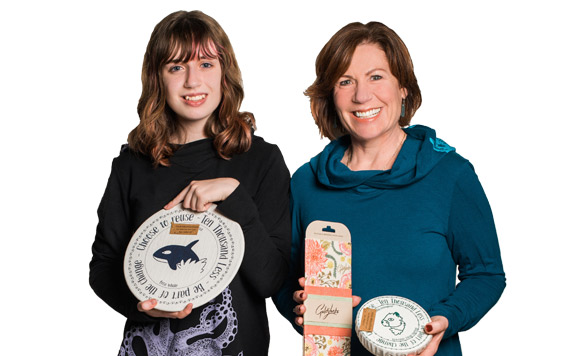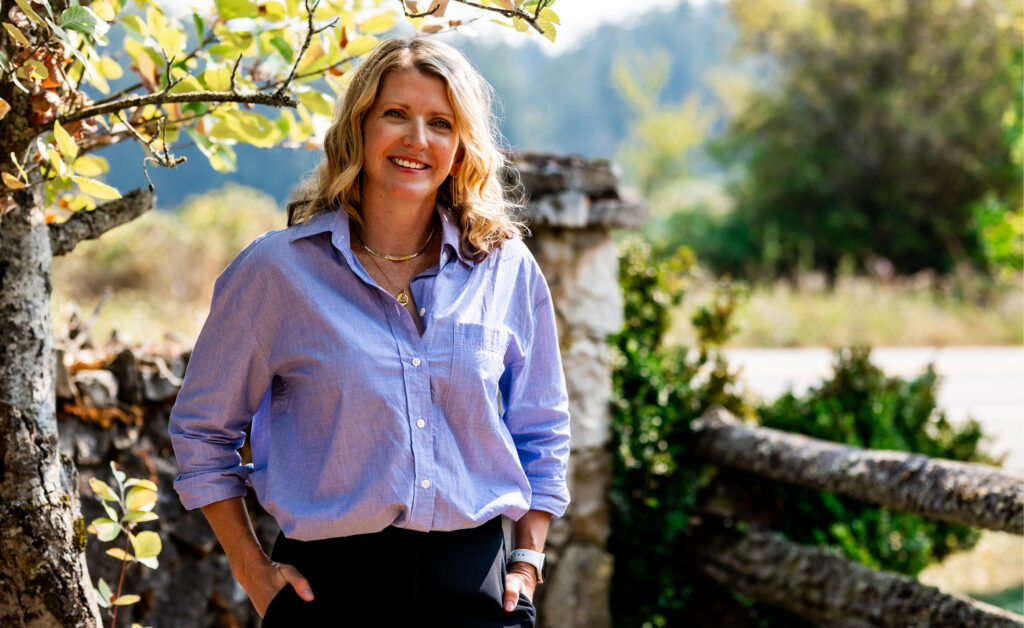by Anne Miller –
We see daily reminders of how the last few generations have injured our precious earth and left the ruins for our children and grandchildren to clean up – if it’s possible. “OK boomer” has become a new meme which mocks a generation that, in large part, seems out of touch with current realities, but this phrase also brings us to attention. It reminds us that we must start talking and, importantly, listening: that each generation – indeed, each person – has something to offer and opportunities to make change.
No example of that notion is more evident to me than my conversation with Frann MacLean and her teenage daughter, Sarah. Like many of us, they are aware of the crisis in the world as a result of our long-held habits of consumption. A new book, called We Are The Weather, tells how countless people do believe the science and evidence of our climate crisis yet are resistant to changing their ways. It’s simply too inconvenient.
Frann and Sarah are an exception to that and are doing something about what they’ve learned. This mother-daughter team in Sidney has initiated an exciting new project based on Frann’s aggravation with the build-up of plastics in our oceans and on land and Sarah’s passion for stopping the damage done to our animals that are suffering from our polluting ways. The project is called Ten Thousand Less and its goal is “to reduce single-use plastic bags, wraps and containers on Vancouver Island by 10,000 units.” Frann and Sarah will do that by sourcing, testing and selling eco-friendly alternatives to single-use plastics and will donate $1 from every sale to the preservation and protection of vulnerable animals on Vancouver Island. They are currently donating the proceeds to the Shaw Centre for The Salish Sea.
Their company website, www.tenthousandless.ca, showcases and sells the beeswax bags, pouches, bowl covers, cotton produce bags and jute shopping totes, among other items, that offer us alternatives to plastics.
Great idea! How did it come about? Above all, Frann and Sarah listen to each other and nurture the other’s passions, skills and values. As Frann says: “We raise our children but each has a different perspective, one worth acknowledging.” Thus, Sarah brings her passion for animal welfare to the business by imprinting, on the items, her illustrations of endangered wildlife close to home – the barn owl, the marmot and the orca.
Sarah also brings her unique approach to making change. Never one to lecture or condemn people for their behaviour, she leads by example, demonstrating better alternatives, believing that people will notice and decide to make a change. She takes a page from the Shaw Centre, where she volunteers, and the Duncan Raptors Centre, where she attends summer camps. They teach that, in order to change, people have to connect with the creature, the community or the planet; to become excited about it. Once connected, we’re more likely to care and to change. In this way, Sarah has taught Frann a great deal, from not killing a spider in the house to animal testing. “She has changed our household,” says Frann.
For her part in Ten Thousand Less, Frann handles the technical and business sides. She brings her background skills in marketing and sourcing to the project along with her belief that bottom-up, local efforts are more effective for lasting change than top-down. Her next idea is to approach management at key grocery chains on the Island with an appeal to get behind this program, to sell their bags and to donate a portion of the sales to the protection and preservation of animals on Vancouver Island.
Frann and Sarah believe that the closer an issue gets to home, the more people feel a part of it. This little business is a community initiative because that’s where the power is – in the community coming together. “If we can make this work, I think we can make a difference,” says Frann.
Anne Miller is a personal historian. Learn more at www.annemiller.ca. Photo by Nunn Other Photography.




